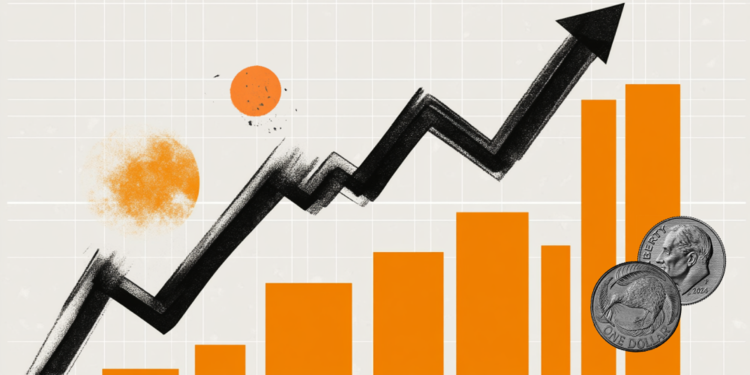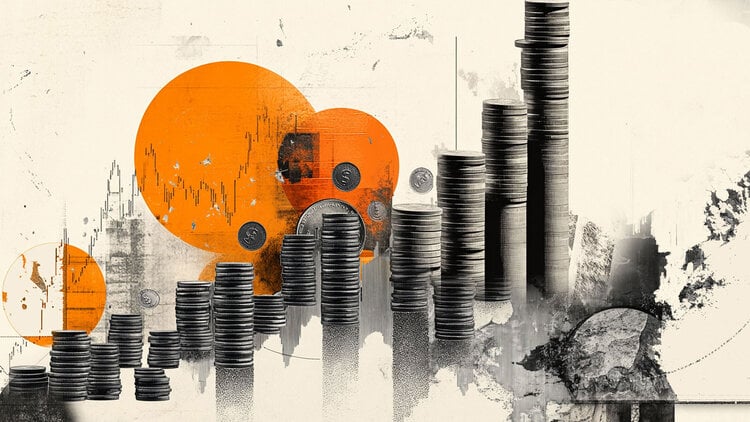Her Eleftherias Kourtali
In the last week, news of rising COVID-19 cases in Europe and the re-imposition of restrictions has not disrupted stock markets. The difference with the Omicron variant is that it has raised concerns about the effectiveness of vaccines, UBS notes.
“We share the markets’ concern about the emergence of the new variant and will monitor developments closely. However, we advise investors not to jump to conclusions based on small data samples and unofficial reports with potentially large margin of error,” the Swiss bank said. points out that in the coming days we will learn more which will clarify things and identifies 6 important fronts:
– So far, the initial conclusions are based on limited data and reports from South Africa, leading to a potentially large margin of error. Currently, only 24% of South Africa’s population is fully vaccinated, according to Our World in Data (OWID). It is too early to say how contagious this variant is in a well-vaccinated population.
– Infection rates in South Africa as a whole are increasing, based on data from OWID and national sources. The latest data show that the moving average of seven-day daily infections per million has risen to about 26, from about 6 in early November, but is still well below the 330 ceiling in July. It is also well below hotspots in Europe, such as Austria at 1,425 per million.
– Also, notes UBS, it is too early to determine whether the large number of mutations will translate into a more infectious and contagious disease. It will probably take several weeks for scientists to determine the sensitivity of the new variant to antibodies and vaccines. The number of mutations is large, however, and while some of these mutations have been associated with moderate vaccine resistance to other variants, their combined impact has not yet been evaluated.
– Other worrying COVID-19 strains failed to spread widely. For example, variant C.1.2, which appeared earlier this year and which was also highly mutated and was initially thought to be about 15% more contagious than Delta, now accounts for less than 5% of cases in South Africa.
One concern is that if the Omicron variant is dramatically different, new vaccines will be needed. But while some degree of escape of vaccines (and antibodies) is possible, total avoidance is unlikely, according to UBS.
Vaccine manufacturers have indicated that early data on the relative efficacy of their vaccines should be available in December. Especially MRNA producers are able to quickly develop new vaccines. Pfizer CEO said the company could deliver a new vaccine variant within 100 days, with 4 billion doses in the first 12 months. Novavax and Moderna have both reported that new vaccines are already under development.
Antivirals, a new anti-COVID-19 weapon that sent markets higher, are also expected to be available in early 2022. They do not work targeting the protein tip and there is no reason to believe that they will be ineffective against the new variant. .
As UBS notes, given the information available, its basic scenario is that the Omicron variant does not justify a change in its view that the global economy is on an (abnormal) path to full reopening and that growth will be strong. It is also worth noting that concerns about the impact of COVID-19 on growth prospects should also alleviate investor concerns about the premature tightening of monetary policy. Ahead of Thanksgiving last week, investors were more concerned about the tightening of economic conditions following new US inflation data, a more aggressive change in rhetoric by some Fed officials and the reappointment of Jerome Powell as president. of the Fed.
“In the coming weeks, we will monitor the development of cases of the new variant, its geographical spread and the severity of symptoms, while we expect efficacy data from vaccine manufacturers,” UBS added. The short-term volatility in the markets is probably due to the rate of increase of the total cases, the mobility and travel measures, the detection of the variation in different locations and the unofficial observations about the severity of the disease. The higher quality data required for a substantive analysis will most likely come later, the Swiss bank said.
Risks in this regard at UBS, he points out, include mutation being extremely resistant to vaccines and antibodies, antiviral therapies proving ineffective, and large economies implementing faster and stricter restrictive measures that will significantly affect its growth. GDP.
What should investors do?
UBS advises investors not to make hasty changes to their investment strategy and recommends that they stay invested in the markets. A period of market volatility after such a strong rally should not come as a big surprise. But it serves as a reminder of the value of differentiation between markets and industries.
Thus, UBS maintains its positive view of the Energy and Banking sectors despite this recent period of instability. He believes the energy sector will be supported by oil prices that are likely to remain high this year and next. It predicts that Brent crude will reach $ 90 / barrel by March. Despite the previous emergence of new strains of the virus, from April 2020 the demand for oil is steadily increasing, although it was unequal between regions and oil products. He expects this trend to continue, with oil demand close to 100 million barrels per day at present. OPEC has delayed a technical meeting by two days until Thursday, giving it time to weigh Omicron’s impact.
UBS also recommends hunting for opportunities offered by the healthcare industry. Although growth is expected to be strong in early 2022, favoring cyclical sectors, the slowdown during the year is likely to begin to favor more conservative market sectors, such as the healthcare sector.
UBS also points out that investors should look for unconventional returns at the same time, because interest rates, bond yields and credit margins remain low based on historical data. Secured US loans, composite loans, private loans and dividend-paying stocks present an attractive picture.
.
I am Sophia william, author of World Stock Market. I have a degree in journalism from the University of Missouri and I have worked as a reporter for several news websites. I have a passion for writing and informing people about the latest news and events happening in the world. I strive to be accurate and unbiased in my reporting, and I hope to provide readers with valuable information that they can use to make informed decisions.







